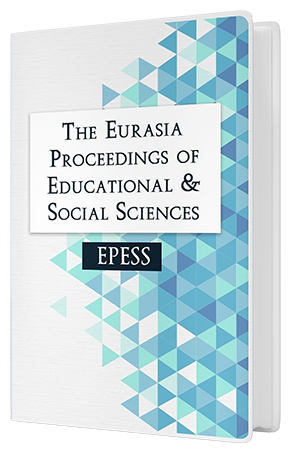The US-China Trade War: A Constructive Analysis of the Causes and Methods of De-Escalation
DOI:
https://doi.org/10.55549/epess.1412718Keywords:
Trade, US-china relations, Exchange rate policy, Pegged exchange rate, Chinese Yuan, Exports, Imports, Trade deficitAbstract
A Global Perspective on the US-China Trade War: Causes, Consequences, and Implications. The US-China trade war, ignited by the protectionist rhetoric of former President Donald Trump, has had profound implications for global economic relations. This paper seeks to examine the chronological development of the trade war, its underlying causes, and the far-reaching consequences it has had on the relationship between the two superpowers. Additionally, it explores the potential ramifications for the Indo-Pacific region and the dynamics of the US-Russia relationship.The trade war has emerged as a complex issue, with both the US and China resorting to retaliatory measures, resulting in a vicious cycle of tariffs and sanctions. Through a thorough investigation, this paper aims to shed light on the impact of these measures on the competitive advantage of American companies compared to their Chinese counterparts. Furthermore, it delves into China's countermeasures and their effects on the country's economy and industrial development.To ensure a comprehensive analysis, the paper draws on a thorough literature review, referencing various studies that explore the root causes and economic impact of the trade war. It places the trade war within its historical context, drawing parallels with past conflicts such as the US-Japan trade war, and examines the political motivations behind the current tension between the US and China.The analysis incorporates relevant statistical data, including trade deficit figures and the composition of imports and exports between the two nations. By doing so, it aims to paint a clear picture of the economic ramifications of the trade war on both countries and the global economy.In conclusion, the paper underscores the necessity of adopting a pragmatic and rational approach to address the US-China trade war. It advocates for both nations to seek common ground while setting aside their differences to achieve mutually beneficial cooperation. Moreover, it emphasizes the significance of innovation, industrial upgrading, and international collaborations for China's economic development amid the ongoing trade war.By presenting a comprehensive examination of the US-China trade war and its implications, this paper contributes to a deeper understanding of the global economic landscape and the critical need for constructive engagement between major economies.Downloads
Published
Issue
Section
License
Copyright (c) 2023 The Eurasia Proceedings of Educational and Social Sciences

This work is licensed under a Creative Commons Attribution-NonCommercial-ShareAlike 4.0 International License.
The articles may be used for research, teaching, and private study purposes. Any substantial or systematic reproduction, redistribution, reselling, loan, sub-licensing, systematic supply, or distribution in any form to anyone is expressly forbidden. Authors alone are responsible for the contents of their articles. The journal owns the copyright of the articles. The publisher shall not be liable for any loss, actions, claims, proceedings, demand, or costs or damages whatsoever or howsoever caused arising directly or indirectly in connection with or arising out of the use of the research material. All authors are requested to disclose any actual or potential conflict of interest including any financial, personal or other relationships with other people or organizations regarding the submitted work.




